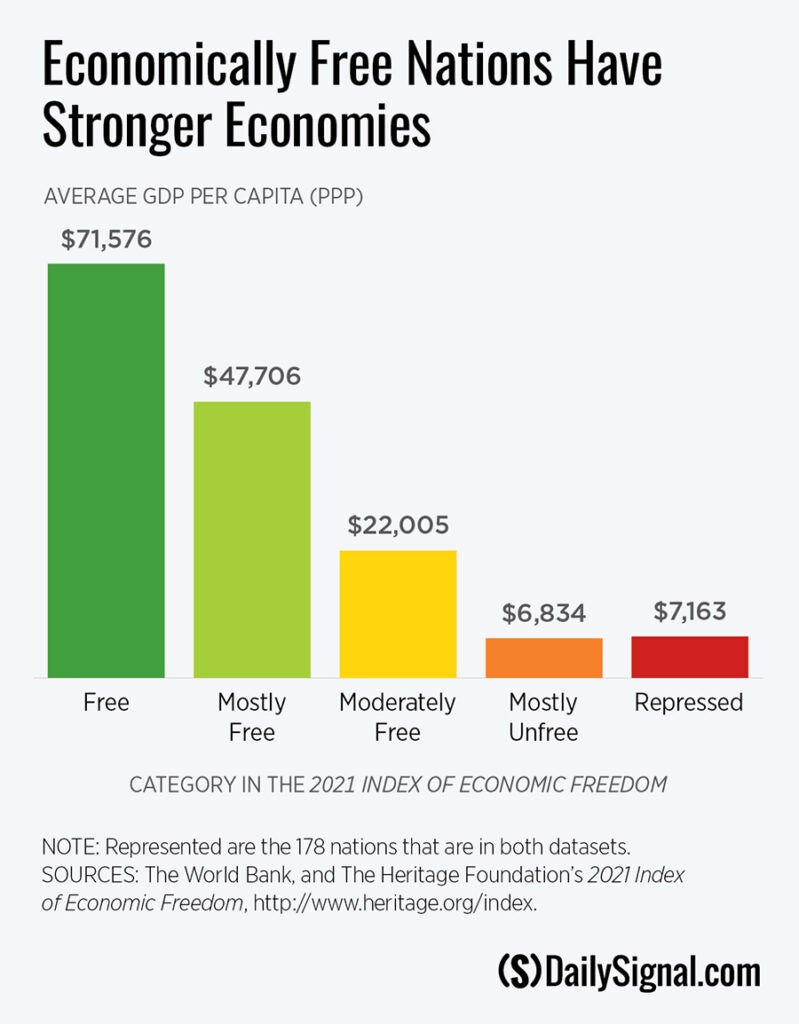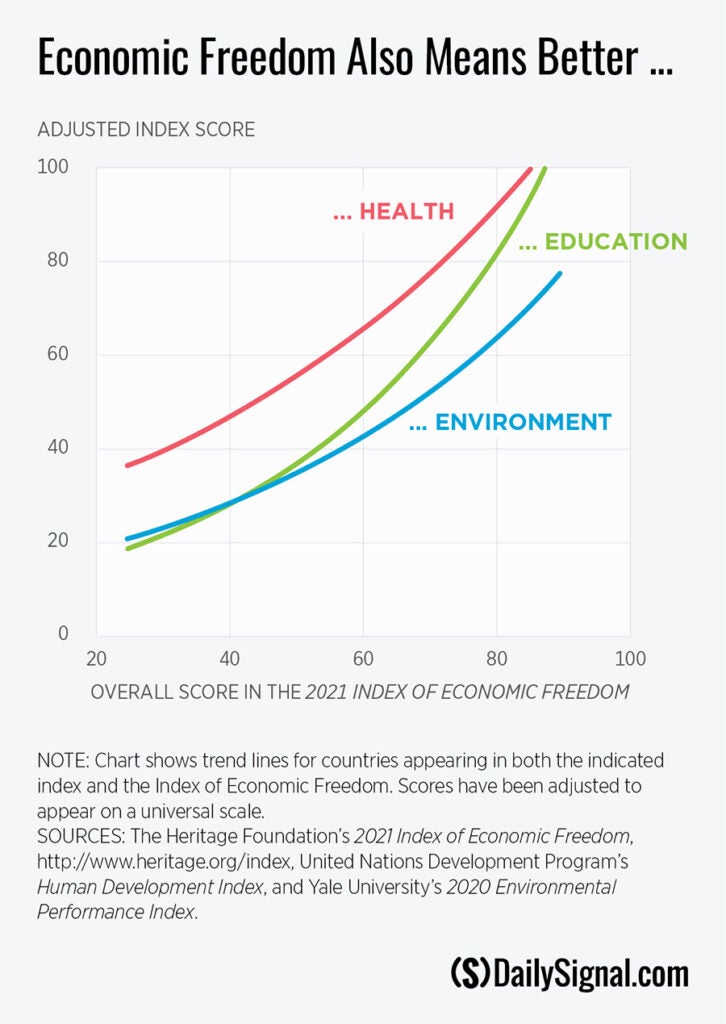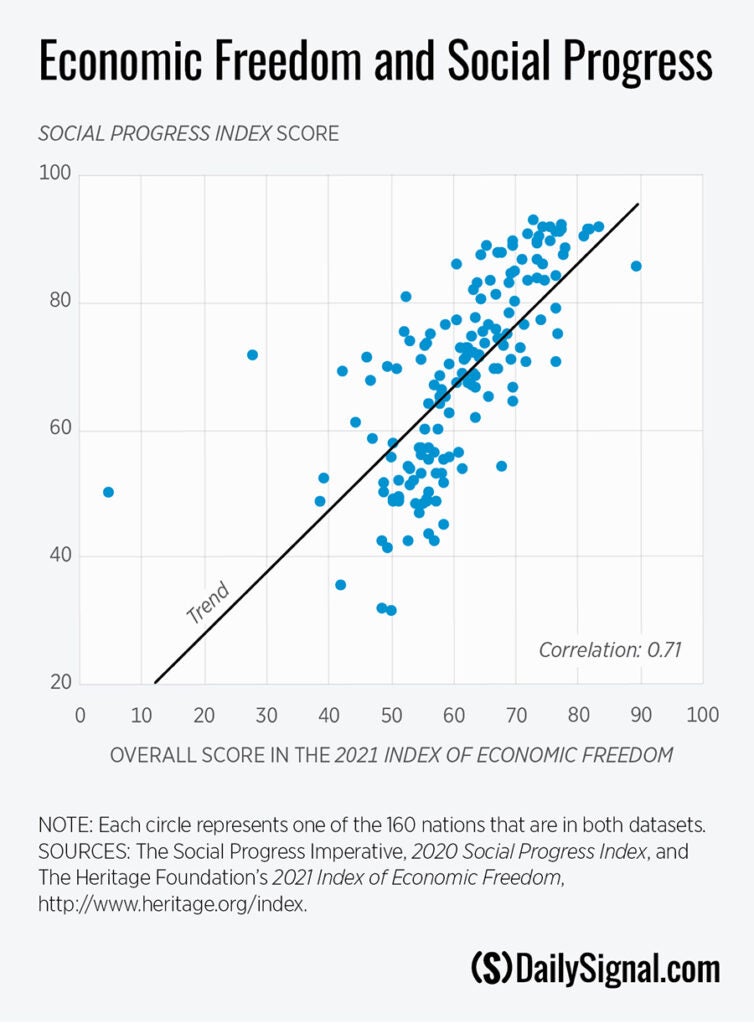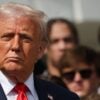The year 2020 was extraordinary for the global economy, with slowing growth and economic turmoil caused and exacerbated by the COVID-19 pandemic, which engulfed the entire world.
In the midst of the health crisis, perhaps not so unexpectedly, our free-market system was questioned yet again by some as a root cause of systemic economic woes that supposedly must be corrected or readdressed by a big-government mandate.
Indeed, 2020 was a vivid reminder of the continuing struggle between the state and the free market.
The Daily Signal depends on the support of readers like you. Donate now
Populist attacks on the free market—fueled by election-year politics in the United States, as well as by actual setbacks to the economy—have gained momentum.
Some of the policy measures undertaken or planned by the governments of the United States and other countries in response to the ongoing global pandemic unfortunately threaten economic freedom and long-term economic growth and prosperity.
The Heritage Foundation just released its 2021 Index of Economic Freedom, our 27th edition, which offers a good starting point from which to step back and reflect on the fundamental principles that are responsible for the progress we have achieved.
The 2021 index, which considers economic policies and conditions in 184 sovereign countries, reveals a world economy that as a whole continues to be “moderately free.”
Perhaps reflecting the challenging policy environment complicated by the early stages of the ongoing pandemic, global average economic freedom has not improved over the past year.
As the index has cataloged, nations with higher degrees of economic freedom prosper. That’s because they capitalize more fully on the ability of the free-market system not only to generate but also to reinforce dynamic growth through efficient resource allocation, value creation, and innovation.
The following are three charts that illustrate the critical importance of preserving and advancing economic freedom.
1. Economic freedom ensures prosperity. Countries rated “free” or “mostly free” in the 2021 index generate incomes that are more than double the average levels in other countries and more than six times higher than the incomes of people living in countries with “repressed” economies.

2. Economic freedom correlates highly with overall well-being, including such factors as health, education, and the environment. Economically resilient countries are not necessarily geographically large or richly blessed with natural resources.
Many nations have managed to expand opportunities for their citizens by enhancing their economic dynamism and integration into global markets.
In general, the overarching objective of economic policies must be to create an environment that provides the best chance to translate opportunity into overall well-being.

3. Economic freedom promotes upward mobility and meaningful social progress. Any discussions of inequality are more about a society’s values than they are about its economic system. At the heart of ensuring upward economic mobility is the task of advancing economic freedom so that dynamic and inclusive growth can occur meaningfully for ordinary people.
Advancing economic freedom is really about putting in place growth-inducing pro-market policies that benefit the greatest possible number of people, rather than the select few.

Heritage Foundation President Kay C. James offered a timely reminder on why economic freedom matters more than ever:
The debate in the United States over whether to move away from free markets and toward socialism may change dramatically … . That’s because in the fight against the global pandemic, we’ll likely witness one of the most compelling arguments in our lifetimes emerge in favor of free-market systems—and lives will be saved in the process.
Indeed, the pathway by which we can emerge from this pandemic stronger than we were before is through a recommitment to the proven policies of free-market capitalism.
In particular, as we continue to fight the current pandemic, our confidence in economic freedom is undoubtedly being tested. But now is not the time to waver.
We should remember that good economic policy is good public health policy, as they go hand in hand.
Have an opinion about this article? To sound off, please email letters@DailySignal.com and we will consider publishing your remarks in our regular “We Hear You” feature.






























